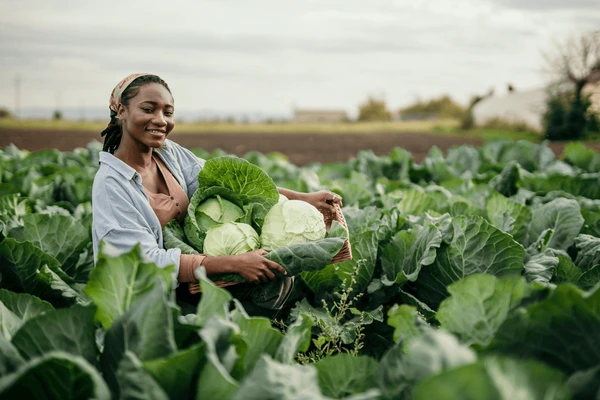The Alliance for a Green Revolution in Africa (AGRA) has released its 2024 Annual Report, showcasing how aligning investments with national priorities is fueling systemic change across the continent’s agri-food systems.
Released under the theme “Country-led, People-powered,” the report outlines AGRA’s accelerated implementation of Strategy 3.0, which places African governments and institutions at the center of agriculture and food systems transformation.
In his foreword, H.E. Hailemariam Dessalegn, Chair of AGRA’s Board and former Prime Minister of Ethiopia, highlighted a strategic pivot toward country-specific, integrated approaches.
“2024 was about identifying the most critical constraints and opportunities in each country, then investing in a coordinated, government-led manner to address them,” he noted. “This marks a move beyond fragmented projects toward integrated, results-driven partnerships aligned with national development priorities.”
Technical Focus and Country Results
AGRA’s operations in 2024 were anchored on four technical pillars:
-
Seed Systems & CESSA
-
Sustainable Farming
-
Inclusive Markets & Trade
-
Policy & State Capability
More than 61% of AGRA’s program portfolio was dedicated to catalytic investments in these areas across 12 African countries, including Nigeria, Kenya, Tanzania, Ghana, Zambia, and Mozambique.
Notable results include:
-
Climate-Smart Agriculture: In Kenya, the STRAK project supported by the IKEA Foundation helped over 118,000 farmers adopt regenerative practices such as mulching and composting.
-
Nigeria: More than 250,000 farmers received advisory services on climate-smart practices and improved varieties, leading to yield increases of up to 300%.
-
Nutrition Linkages: AGRA supported the production of over 1,925 metric tonnes of biofortified seed in Kenya, Malawi, and Tanzania—reaching over 385,000 children through school feeding programs.
Seed Systems and Structural Reform
Through the Center of Excellence for Seed Systems in Africa (CESSA), AGRA co-developed national seed investment plans in six countries and scaled the SeedSAT diagnostic tool to improve farmer access to quality, climate-adapted seeds.
“Seed is foundational—no seed, no prosperity,” said Alice Ruhweza, AGRA’s new President. “Our seed system reforms are helping smallholders move from subsistence to surplus.”
Policy, Markets, and Investment Mobilization
Country-specific strategies delivered measurable outcomes:
-
Tanzania: Facilitated $129 million in agribusiness finance for youth through the Building Better Tomorrow initiative.
-
Zambia: Developed a $950 million national food systems investment plan.
-
Uganda: Strengthened maize export systems, resulting in a 211% increase in structured maize exports.
-
Mozambique: Passed a new Seed Law and adopted a National Seed Investment Plan.
-
Ghana: Digitized value chains in rice and soybean and improved farmer-market linkages.
AGRA also supported inclusive markets through platforms such as VALUE4HER, which has empowered over 3,500 women agripreneurs, and YEFFA, which reached nearly 500,000 youth with training, policy engagement, and enterprise development.
Strategic Partnerships and Impact
In 2024, AGRA invested $164 million, disbursing $41.7 million directly to implementing partners. Key partnerships were expanded with the World Economic Forum, Green Climate Fund, and the Africa Fertilizer and Soil Health Summit, which produced the Nairobi Declaration—a continental commitment to triple fertilizer use and restore 30% of degraded land by 2034.
AGRA’s RE-GAIN program was approved by the Green Climate Fund and is expected to benefit 2.6 million people across seven countries starting in 2025.
Looking Ahead
Reflecting on her first year as President, Alice Ruhweza emphasized AGRA’s continued commitment to localized, inclusive, and climate-resilient agricultural transformation.
“We are investing in country-owned solutions that integrate resilience, market access, and nutrition,” she said. “Together with farmers, governments, and the private sector, we are working to turn farming from a struggle for survival into a thriving enterprise.”
The 2024 Annual Report offers a bold roadmap for tackling the continent’s most pressing agricultural challenges—through the power of partnership, national alignment, and farmer-first innovation.


